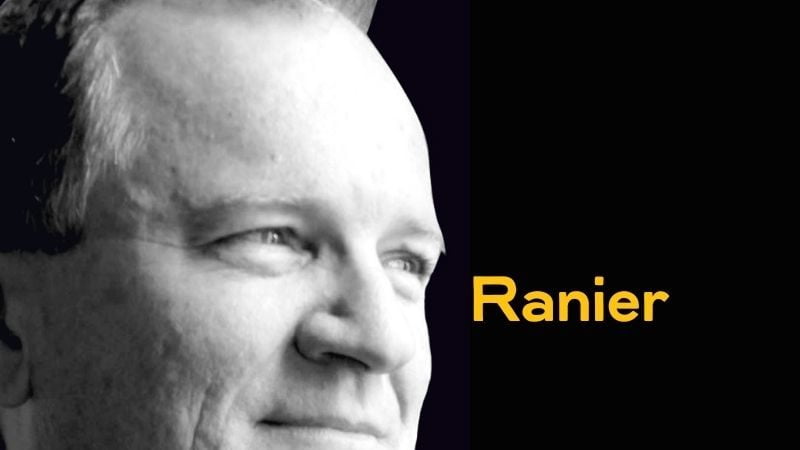In case you missed it, PBS has declared that Robert Abela’s work isn’t very important. Nor is the work of his ministers, including Owen Bonnici, who’s responsible for the public broadcaster.
PBS was formally replying to the Data Protection Commissioner, who had ordered it to accede to The Shift’s Freedom of Information request to reveal the names of the current members of the PBS Editorial Board and give their remuneration.
PBS is appealing the decision. It says the Editorial Board does “very important work” on behalf of PBS; revealing salaries is “not in the public interest”, as it might distract from their work.
The PBS Golden Rule of transparency: If the job is very important, then revealing the salary is not in the public interest.
Where does that leave Robert Abela? Logically, somewhere on the margins of irrelevance. After all, we do know his salary. Then again, maybe PBS thinks that Malta’s problems boil down to the publication of the prime minister’s salary: it has taken his mind off ending government corruption.
Good thing Abela keeps us in the dark about all his sources of income. Lord knows what chaos would descend if he came clean.
Strangely, the Golden Rule is violated by the BBC. If you want to know the salary of its Director-General, Tim Davie, you can just look it up on Wikipedia. The BBC’s website gives details on salaries (including those of the editorial team), code of ethics and top management’s personal declarations of interest.
If Malta is your benchmark, of course, the BBC is the perfect illustration of gross distraction in public broadcasting. Its latest headlines report that Boris Johnson was booed in public; they keep us updated on his mounting difficulties. By PBS standards, the BBC suffers from convulsive fits of absent-mindedness; it lets news that embarrasses the government pass through its filters.
In contrast, PBS is vigilant. Its editorial board, free from distractions, is alert to what its viewers should get to know. Let’s admit that is both sensitive and very important.
Plainly, the BBC has a different golden rule: Earn public trust.
This golden rule is based on two ideas that PBS must find extraordinary. It’s in the public interest to know the salaries of its top officials. It’s in the BBC’s interest to be transparent.
Similar positions have been adopted by Italy’s RAI and France Télévisions. Since the mid-2010s, they’ve been publishing the salaries of their top officials.
In 2016, RAI’s then-president, Monica Maggioni, said, “We have a high regard for the principle that citizens… have the right to know what happens at RAI.”
By Malta’s standards, these three industrial powers lack all sense of “commercial sensitivity”. We not only know the salary of Delphine Ernotte Cunci, the CEO of France Télévisions; we also know that it’s half the €800,000 that she earned when she led Orange France (formerly France Télécom).
For the BBC, the only salaries that are truly commercially sensitive and, therefore, not published, are related to programmes it buys on — you guessed — commercial terms.
Otherwise, it takes the quaint view that a public broadcaster, whose mission is to make public affairs transparent, needs to be transparent itself. It has been publishing the full contract of its Directors-General for nearly 10 years.
The BBC also insists on strict political impartiality. In 2013, it appointed a member of the House of Lords, Tony Hall, as its Director-General. His contract did not permit him to participate in any votes in the Lords; he was also barred from “any political activities” without the BBC’s written consent.
Meanwhile, the PBS Board Secretary, Mark Vassallo, has been captured on camera directing ONE’s broadcasts of Labour’s mass rallies before the last general elections.
Two worlds, two contrasting standards. At the BBC, salaries are public and political preferences must be kept private. At PBS, salaries are private but political preferences for the ruling Party may be openly displayed.
At the BBC, transparency on salaries and privacy on political preferences are key values because the broadcasters work for the public. At PBS, a transparent preference for the ruling Party and opaque salaries make sense — the broadcasters work on behalf of political bosses who regard public funds as their private purse.
One thing is transparent at PBS. Its benchmark is not the BBC; it’s Putin’s RT. That’s why PBS makes formal declarations — as it did to the Data Protection Commissioner — that don’t even need to try to make sense.
Why bother? It’s not reason or principle that wins arguments but pure political might.













Robert Abela and his government are dead set to give the impression to the world that they are holier than the Pope. Maybe that was the reason why Abela was so determined to invite the Pope during the COVID-19 pandemic.
Transparency in public institutions is the key in a democratic state. This commercially sensitive excuse is a load of bullsh**
Media, especially public media, should be totally transparent… sadly the BBC is not a good example. Their public trust and impartiality have vanished due to their bias and misspending… with any luck, they will soon be kicked out of their role as a ‘public’ broadcaster. Not that this takes away from the very salient points that you make in your article. It is still very relevant.
Hypocrisy and false arguments:
Once again the PL has to explain the looting of the state treasury.
How can it succeed with propaganda TV?
In fact, there are no meaningful explanations and they continue to lie and lie and pull something out of their noses.
We must not forget that we are talking about representatives of the people, but they behave like mafiosi.
How much more beautiful would beautiful Malta be without mafiosos, without corruption and with honest humanity?
It would be so much richer!
PBS HAS ALWAYS BEEN A POLITICAL TOOL IN THE HANDS OF
SUCCESSIVE PL GOVERNMENTS.